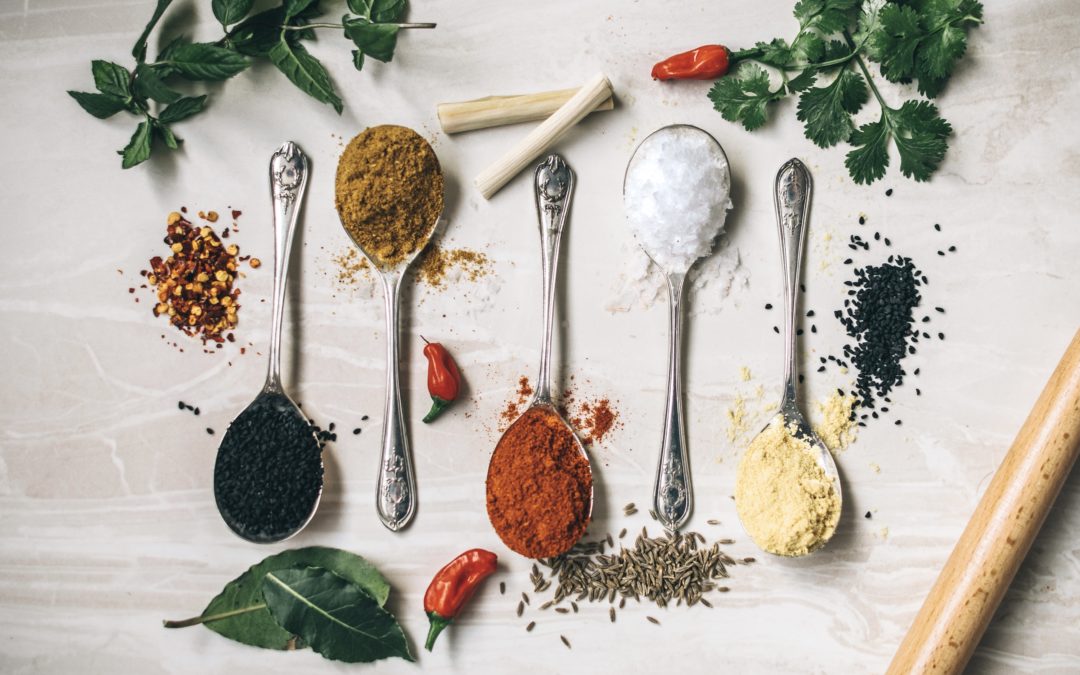Much like our more traditional therapeutic medications and treatments help minimize pain, treat infections, and improve symptoms of disease, plant medicines are a more natural remedy that strives to do the very same thing. However, the major difference here is the intimate relationship plant medicines share with humans and the environment. Without any synthetic additives, this all-natural form of medicine plays a key role in our health and well-being.
Throughout this article, we cover the true essence of plant medicines in terms of what they are, the top 8 most powerful types, and how we have thoughtfully chosen to introduce some of them into our State B cannabis beverages.
What are Plant Medicines?
Plant medicines are defined as a species of naturally grown plants that are used to treat and prevent health conditions and diseases; unlike entheogens, which are a type of plant medicine that focuses on the use of naturally occurring psychoactive substances to help transform a temporary state of mind (i.e. psilocybin, mescaline, ayahuasca, and cannabis).
Instead, these medicinal plant species are either “wild harvestable” with the help of an in-person guide of a book, or “wild” if grown spontaneously in natural ecosystems. It’s important to note that these plant medicines should always be harvested responsibly and with the permission from the people that reside on the land.
With the wide range of different wild and domesticated plants grown across the globe, the medicinal varieties play a therapeutic and/or curative role on humans. Generally speaking, what sets these plants apart from your average garden flower is the abundance of active ingredients that are packed inside (i.e. essential vitamins, anti-inflammatory agents, etc.).
Top 8 Most Powerful Plant Medicines
1. Calendula
Calendula (Calendula officinalis) is a potent medicinal plant that contains helpful anti-inflammatory properties. Originally, this flower was eaten as full leaves or used in tea or oil infusions to aid with both internal and external inflammatory issues. A 2013 review has provided further insight on the use of calendula as a beneficial treatment for skin tumours, lesions, ulcers, and swelling. As such, this natural anti-inflammatory agent is now used in over 200 cosmetic formulas including creams, lotions, and shampoos.
2. Chamomile
Chamomile (Matricaria chamomilla) is one of the most popular ancient plant medicines known to mankind. Recognized as a delicious and relaxing herbal tea, not too many people realize just how impactful chamomile truly is. In recent research, chamomile is found to minimize symptoms of inflammation, muscle spasms, menstrual issues, insomnia, GI disorders, rheumatic pain, and even hemorrhoids. In recent years, chamomile has been made into essential oils used in cosmetics and aromatherapy.
3. Holy Basil
Holy Basil (Ocimum tenuiflorum) is an impressive plant medicine that offers a selection of health benefits. As the “mighty protector” holy basil is known for its antioxidant, anti-bacterial, anti-inflammatory, and anti-fungal properties. Commonly taken orally as an essential oil or herbal tea, this plant medicine is known to minimize cold and cough symptoms, fevers, and protect our bodies against certain infections.
Holy basil is a powerful ingredient that we have integrated into the Resolve cannabis beverage to improve respiratory function, balance stress hormones and control blood glucose levels, which is especially helpful for type I and II diabetics. Plus, as a great source of Vitamin K, holy basil helps regulate our levels of calcium to keep our bones strong and healthy.
4. Plantain
Plantain (Plantago major) is a unique plant medicine that is actually considered to be a weed in certain countries. Much like holy basil, plantain is used medicinally for its anti-inflammatory, antimicrobial, and antibacterial properties. What makes this plant stand out is its abundance of essential nutrients including vitamin A, C, and K. Together, these vitamins help to encourage immune function, cell development and repair, as well as wound healing and bone metabolism.
5. Hyssop
Hyssop (Hyssopus officinalis) is an edible and not to mention delicious member of the mint family. Found in an assortment of foods, beverages, and even some perfumes, hyssop is also an effective remedy to treat digestive and intestinal problems including abdominal pains, gas, colic, and loss of appetite. In addition, this minty-scented herb helps soothe sore throats, stimulates mucus production, and manages asthma symptoms.
6. Peppermint
Peppermint (Mentha piperita L.) is one of the most popular types of herbal teas on the market. Although delicious, peppermint offers so much more than its flavour and aroma. Used in current traditional medicine, peppermint tea leaves and essential oils offer antimicrobial properties that help treat flatulence, diarrhea, nausea, the common cold, and possibly even irritable bowel syndrome (IBS). Given the calming and refreshing nature of peppermint, it’s also used in topical remedies to help treat headaches, muscle aches, and joint pain.
Peppermint is just one of the many beneficial ingredients we have thoughtfully chosen to incorporate into our Zing cannabis beverage. Designed to energize the spirit, peppermint is the perfect plant medicine to promote greater clarity, mindfulness and alertness.
7. English Lavender
English Lavender (Lavandula angustifolia) is a beautifully scented plant medicine that is commonly used in aromatherapy to promote calmness and wellness. With its soothing scent alone, lavender oils are widely used as a product to relieve stress and anxiety. While the fragrance itself has incredible healing power, it’s also believed to have both antiseptic and anti-inflammatory properties to help heal minor skin burns and bug bites. Interestingly, current research has shown lavender to also be an effective treatment for several neurological disorders such as epilepsy.
8. Hawthorn
Hawthorn (Crataegus ambigua) is a commonly used plant medicine in traditional practices to help treat fevers, increase circulation, and potentially lower blood pressure. As a potent antispasmodic agent, hawthorn can be used to help fight heart weaknesses, smasms, and murmurs. Unlike many other plant medicines that contain their active ingredient in the leaves, hawthorn plants carry their therapeutic properties in their flowers, berries, and leaves.
Transforming Your State B Experience with Plant Medicines
As research continues to flourish in the area of plant medicine, many of these variations have proven to be a major remedy in the traditional system of medicine. With this, we at State B Cannabis Beverage Co. advocate for the use of plant medicines to help energize, protect, and strengthen our mind and body.
One of the best ways you can introduce more of these powerful plants into your daily rituals is by making up your unique recipes. Using State B cannabis beverages, there are numerous ways to use the leaves, oils, or herbal extracts of the plant medicines to blend together a new and exciting beverage. Here are some State B-inspired recipes to kickstart your imagination.
Let us know what new recipes you discover.



Recent Comments